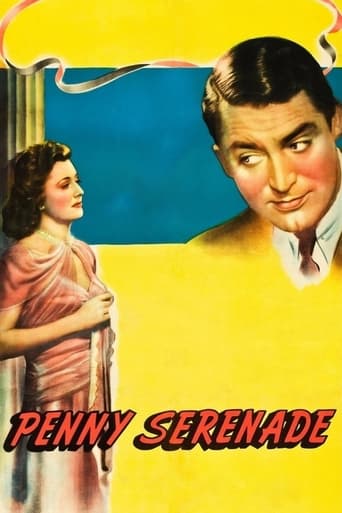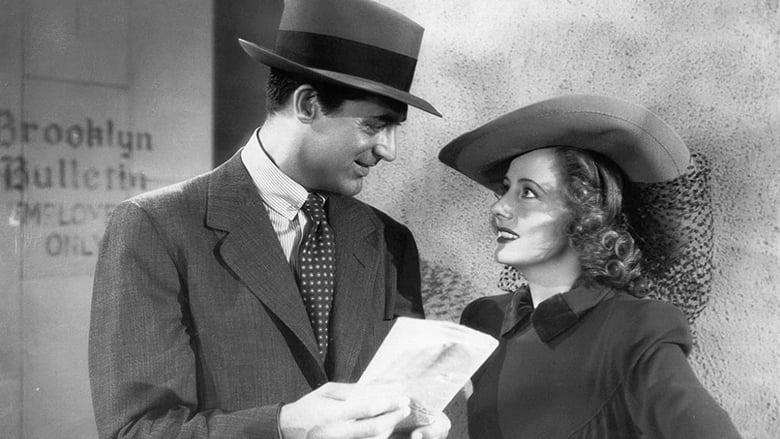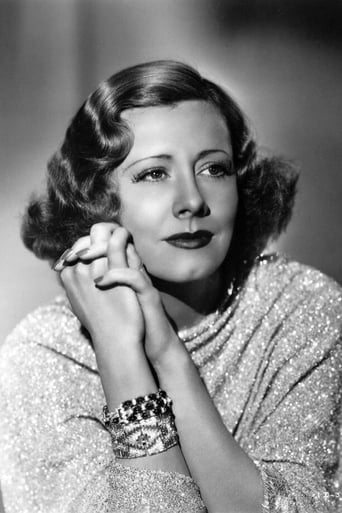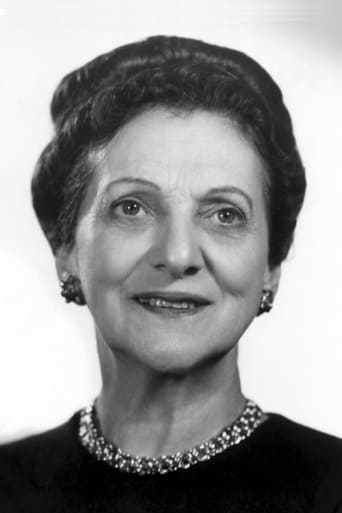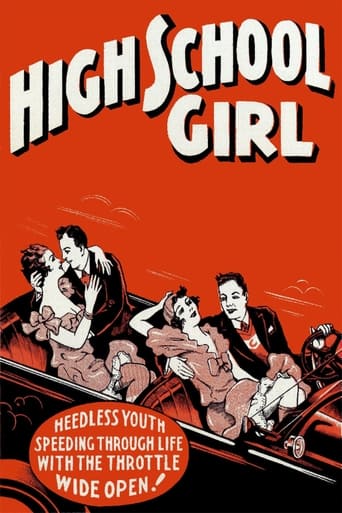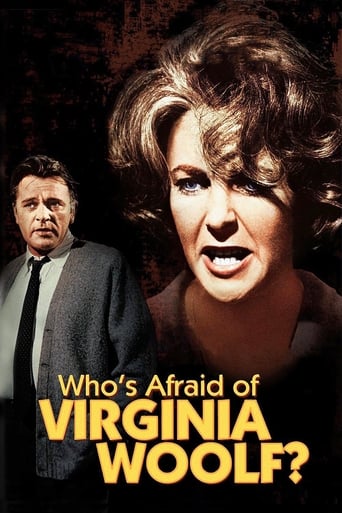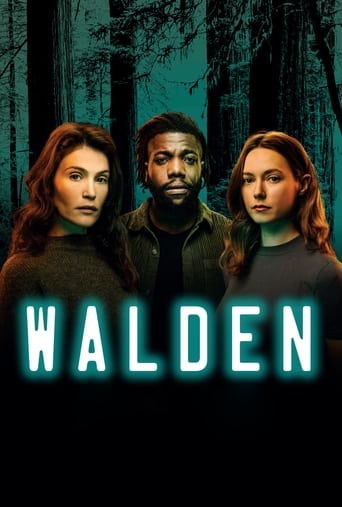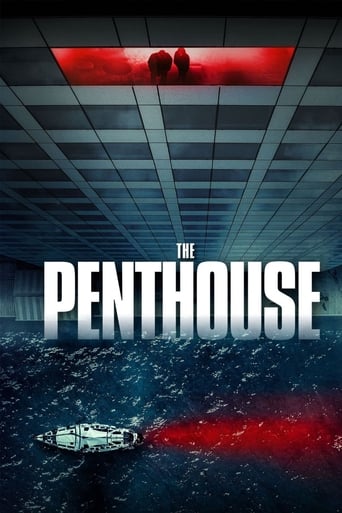Penny Serenade (1941)
Julie and Roger are a love-struck married couple who desperately want to have a child. Tragedy after tragedy gets in their way, as the two attempt to rise above their troubles and fulfill their dreams of parenthood.
Watch Trailer
Free Trial Channels
Cast


Similar titles
Reviews
Great visuals, story delivers no surprises
Tells a fascinating and unsettling true story, and does so well, without pretending to have all the answers.
Blistering performances.
A clunky actioner with a handful of cool moments.
The film reunites Irene Dunne and Cary Grant for the third and the last time, after their successful pairing in Leo McCarey's THE AWFUL TRUTH (1937) and MY FAVORITE WIFE (1940). Under the tutelage of George Stevens, PENNY SERENADE is a good-natured and polished melodrama where mishaps and glee alternately emerge around an average couple Julie (Dunne) and Roger Adams (Grant). Opening with Julie assuming her deliberated departure from Roger in medias res, the narrative consists of a nexus of chronological flashback segued by various melodies in an album coined "The Story of a Happy Marriage" playing from the phonograph, as signifiers to Julie's memories, how a tuneful and glitched YOU WERE MEAN FOR ME brings Roger to her life, their sequential romance, a spur-of-the-moment marriage and their spell in Japan due to Roger's work where a seismic shock (both literally and metaphorically) leaves an irremediable missing link in their otherwise content life. Back to US, Roger starts his print business from the scratch in a small town, that missing link will be mended through adoption, a new life is put into their care and they must get familiar with parental skills (where we get great comedic moments in its slice-of-life simulation) and fight for their baby girl against their unstable financial situation, only to come in for another hammer blow that will (almost) sabotage their marriage, if not for the problematic and expedient ending, the fond memory of a departed can be so quickly and miraculously displaced by the arrival of a new one, is it a blind faith deeply entrenched in the psyche of America at then or that marriage is so unbearable if not for the presence of an offspring? One would gratingly wonder. Save for that reactionary deus ex machina, the film is a heartfelt blessing from Hollywood-land in a less glamorous and often depreciated genre of melodrama, the two leads give sterling performances here, both shorn of star vanity and completely carry the rather corny story on their own shoulders and shore it up with significant effort to sustain a touching but also realistic vibe that transmogrifies the picture with enduring charisma and yesteryear nostalgia. Cary received his first-ever Oscar nomination for this picture, his Oscar moment is that earnest plead in front of the judge, which rarely emblazons his dramatic showmanship to great extent, but Dunne, admittedly, is the fulcrum of the film here, she is self-deprecating but never shy of inner strength and orthodox femininity, quite a leading lady in her early 40s, why isn't she more worshiped by new generations? She is the convention-bucking heroine of a sexism business and an impressive 5- times Oscar nominee. Also, Edgar Buchanan and Beulah Bondi both need a shout-out for their supporting turns, the former's uncle Applejack is the bee's knees every family needs whereas the latter is so primly respectable by her sheer appearance as the rule-breaking head of the adoption faculty, lastly, to sing a little praise to director George Stevens, what an even-handed actor's director he is, his style is un-showy but after all, it is the torrid human emotion gets our attention and keeps us watching closely to his performers, that is a different kind of cinematic expertise which no one can deny.
The Plot.As Julie prepares to leave her husband Roger, she begins to play through a stack of recordings, each of which reminds her of events in their lives together. One of them is the song that was playing when she and Roger first met in a music store. Other songs remind her of their courtship, their marriage, their desire for a child, and the joys and sorrows that they have shared. A flood of memories comes back to her as she ponders their present problems and how they arose.Jesus this plot sounds depressing. The 40s were a time when Hollywood was in flux. Late 40s already saw the rise of television which would explode in the 50s. The movies made in the 40s were largely the built on post war conventions we don't hold dearly today.I found it very hard to look beyond the dated sensibility of this film. The script conventions that have been done a million times. Maybe it's just me. i don't know.I just found the movie annoying.
Julie's marriage to Roger is on the rocks and they are about to separate. When she is by herself, she plays a succession of records associated with different stages of her relationship with Roger. With the playing of each record, the tune becomes the background music of a flashback, beginning with when they first met, and at important stages in their lives. But the flashbacks show us what a great marriage they have, so we figure something really bad must have happened to cause these two to separate. After an accident, Julie is no longer able to have children, so they adopt a girl. At first I thought that somehow Roger was going to be responsible for her death, by accidentally running over her when she runs out into the street. She does die, but it is clearly not anyone's fault, not even accidentally so. Furthermore, her death is not even seen, but only mentioned in a letter, followed by scenes of the two of them being silent and sad. We never really believe that they are going to get divorced, and they don't.The plot of this movie is similar to "The Marrying Kind" (1952), where another couple is about to get a divorce. Instead of records playing tunes from the past, the divorce judge, who can see that they have a good marriage, questions them, and their story is told in flashbacks, revealing what a good marriage they have, making us wonder when we are going to get to the part that made them so miserable. Once again, we find that a child died, this time by drowning; once again it is an accident for which neither of them can be thought to be responsible; and once again we can see that this is something that they will eventually get over, and so they do not get the divorce.The moral of these stories seems to be that people who are in an unhappy marriage should stay together and work things out. There is something irritating about the way both movies are dismissive of just how miserable a marriage can be, as if married couples who want a divorce simply don't realize how much they really love each other.
This whole movie is full of disappointments and sorrow, it follows the trouble of Julie and Roger Adams who are constantly screwed in life's journey. The movie is black and white but has a very clear picture and pretty good sound quality for a 1941 film. The movie is shot mostly indoor so the lighting is adequate. The only complaint that I have for the movie is that it's two hours long. It's a little drawn out and doesn't really need the whole two hours that it fills up. Some scenes could definitely be pulled out so that the film is easier to sit through in one sitting. Overall I rated the film an 8 out of 10 because it's a very sad and developed story, the only complaint that I have is the length of the film.

